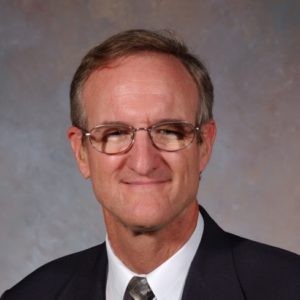
Douglas Weaver
Baptists traditionally aren’t known for embracing the concept of a vibrant, active Holy Spirit.
No wonder, then, that historian Douglas Weaver was astonished to uncover enough material, including Baptist newspaper archives, to write a 589-page book titled Baptists and the Holy Spirit: The Contested History with Holiness-Pentecostal-Charismatic Movements.
“I was surprised there was as much as I found,” said Weaver, professor of Baptist studies at Baylor University. “I was surprised how often (Baptist newspapers) cited holiness folks.”

Weaver’s text delves into the cultural and theological forces that led many Baptists to reject notions such as the gifts of the spirit, and others to embrace them.
He spoke with Baptist News Global about the book. His comments are included here, edited for clarity.
What were you most surprised by in your research?
What surprised me was the extensive interaction between Baptists, Pentecostals and holiness folks. There was just more interaction than you would ever have thought. Pentecostals were viewed as people who lived on the other side of the tracks. But I found that a lot of Baptist newspapers were writing about holiness advocates.
Yet the topic continues to make a lot of Baptists uncomfortable today. Why?
Yes, it still makes people nervous. Part of that is among evangelicals and also among us as CBF (Cooperative Baptist Fellowship) Baptists. We are inclusive and we accept the role of emotion, but we get nervous when there is too much of it. That’s true for Southern Baptists, as well. Coming out of their fundamentalist way of reading the Bible, they believe that miracles stopped in the New Testament. It’s not the only view out there, but it’s the dominant view.
What’s the issue at play here?
I think it has to do with emotion. I talk a lot in the book about being “slain in the spirit,” which is popular today in charismatic circles. You’ll see them falling to the floor and they endearingly call it “carpet time.” I think it reveals a need for more than conversion. It reveals a need for intimacy with God. Some traditions have sacraments – tangible things you hold onto. These are tangible signs – speaking in tongues, being slain in the spirit – that they can hold onto.
How have Baptists typically reacted to these signs?
There are two extremes. One is they just ignored it. The other is they embraced cessationism – again, that miracles ended with the New Testament. There was a group in between that embraced holiness Baptists and other holiness authors like Jack Taylor and his book The Key to Triumphant Living. What they say is you get the power of the Holy Spirit to evangelize. So, it fit into Southern Baptist contexts.
Have black Baptists been more willing to embrace the Holy Spirit?
African American Christians, especially in the South, have always had expressive emotion in their worship. The founder of the Church of God in Christ is an ex-Baptist, C.H. Mason. The Full Gospel Baptist Church Fellowship is a fascinating group where you can be Baptist and Pentecostal at the same time. There are Word and Spirit Baptists who have holiness roots. Black Baptists have always had more willingness to talk about the Spirit than white Baptists, for sure.
What is meant by ‘baptism of the Holy Spirit?’
In the late 19th century baptism in the Holy Spirit meant to be sanctified or holy. But the Pentecostal movement began to ask how do you know if you were baptized in the Holy Spirit? You know that by speaking in tongues. It’s the power of the Holy Spirit in your life – it’s a second religious experience. With Baptists, think about everybody you know who was converted in a Baptist church who asks “how do I know if I am saved?” A conservative pastor says to get baptized again.
Is there any indication that younger generations of Baptists are more open to embracing the Holy Spirit?
Yes, they are more interested in, and more open to, the gifts of the Spirit. It’s not necessarily a focus on tongues, and I think a part of that is they are more open to contemporary Christian music. That music is rooted in the charismatic movement and the Jesus movement from the 60s and 70s.


